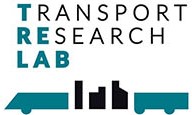Stakeholders’ preferences
Dissecting preference heterogeneity in consumer stated choices
Dissecting preference heterogeneity in consumer stated choices This paper investigates alternative methods to account for preference heterogeneity in choice experiments. Heterogeneity can be explained by assuming its influence to impact the systematic component of utility, the stochastic one or both. Seven different models were estimated to search for heterogeneity along the three dimensions described. The [...]


